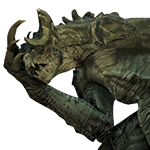Warhammer 40K: Rogue Trader's most intriguing aspect is the most boring part of other RPGs - the middle ground
Everybody disliked that, yes, but they're all hideous zealots
In the grim darkness of the far future, there is only... compromise, calculation and license to misbehave. In Owlcat's forthcoming
RPG Warhammer 40,000: Rogue Trader, you play the free-wheeling head of an interstellar merchant's dynasty. Operating on the fringes of uncharted space, you're the owner of a Warrant of Trade that essentially lets you run your own miniature empire within the Imperium, deciding the fates of planets, amassing vast wealth and recruiting a motley crew of xenos, heretics and assorted weirdos. It's the kind of behaviour that'd get you vaporised if you were some run-of-the-mill Space Marine Chaplain, but out here on the frontier, you're allowed to act with impunity, providing you fulfil your overall mandate of adding to the God Emperor's glory and kicking the odd Eldar's head in.
Rogue Traders are arguably the only characters in Games Workshop's brutal and decrepit table-top setting that lend themselves to the role of CRPG protagonist, because they are the only characters in Warhammer 40K's Imperium who enjoy
anything like the plot agency of a Commander Shepard. And with that, I think, comes an interesting transformation of the character alignment systems the game shares with other CRPGs such as
Baldur's Gate 3.
Going by the few hours I've played of the beta, Owlcat's game gives you three overall philosophical alignments to pick from. They're offered up to you as a kind of High Gothic Pizza of Terror, with different buffs and options unlocked as you make Important Decisions and progress along each alignment's upgrade path. "Imperialis" measures your fanatical devotion to the God-Emperor, greatest of psykers and the soul-cannibalising lynchpin of humanity's galactic communications. "Hereticus" measures your fanatical devotion to the encroaching forces of Chaos, always seeking to warp unwary minds and reduce the cosmos to a demon fondue of spikes and tentacles. And "Benevolentia" measures your fanatical devotion to not being a massive dickhead all the time. It's the alignment concerned with the value of individual lives, the virtue of compromise, and the vague desire not to slaughter whole planets unnecessarily even
if one of the residents did once cough at a picture of the Emperor without praying for forgiveness.
So far, these alignments split the game's dialogue choices between them in familiar ways. You can assert your zealous loyalty to the Imperium, indulge in openly Heretical banter, or Benevolently hedge your bets with that special variety of toneless and functional, "strictly business" RPG wording that always makes me think the character has cracked a fart and is hoping nobody will notice.
In most RPGs, the third option would be the most boring. It's the non-committal approach that, in my case, speaks to my dread of giving offence both within games and outside them, and my fear of missing out on something by leaning too hard in the direction of any individual NPC and their beliefs. Party-based RPGs rely on these "safe" third-way choices - without them, many players would be scared off - but I think there's a general understanding among writing teams that their job is to nudge you away from the lukewarm centre and get you experimenting with the extremes, where all the juiciest plot dynamics and lategame abilities are found. Some RPGs are openly scornful of the having-it-both-ways approach, whether by killing both the characters you refuse to choose between, or in the case of the admittedly atypical
Disco Elysium, openly making fun of your hand-wringing.
But Rogue Trader is different, because in Warhammer 40,000, the extremes are
extreme. Everybody who holds any kind of factional standing is some kind of arsehole. The Imperium and Chaos are two revolting institutions pointed in different directions, each the shadow of the other. The other factions are either fading, ancient empires or newer, wannabe empires or some mixture of the two. The Orcs are probably the friendliest faces at this point in Warhammer canon, and that's because, for all their tendency to hack entire solar systems to giblets, they sort of just want to party.
I should acknowledge, here, that I haven't read a lot of the Black Library books and other stories which follow specific characters through the stew of Warhammer worldbuilding. I've only really ever played the tabletop games and various strategy or action videogame adaptations, which obviously push the bloodshed to the fore. But still, this doesn't strike me as a fiction in which you'll ever persuade the opposing factions to sit down and shake hands, by religiously hitting Dialogue Option 3. And that makes the presence of the Benevolentia alignment in Rogue Trader fascinating to me, together with the other, murkier aspects of Rogue Trading I've heard about from the developers - haggling with local warlords, setting up back-alley deals, and keeping your crew of violently mismatched idealogues in check. In such a polarised universe, the real "radical" playstyle is surely the middle ground. How on earth will Owlcat pull it off?





























